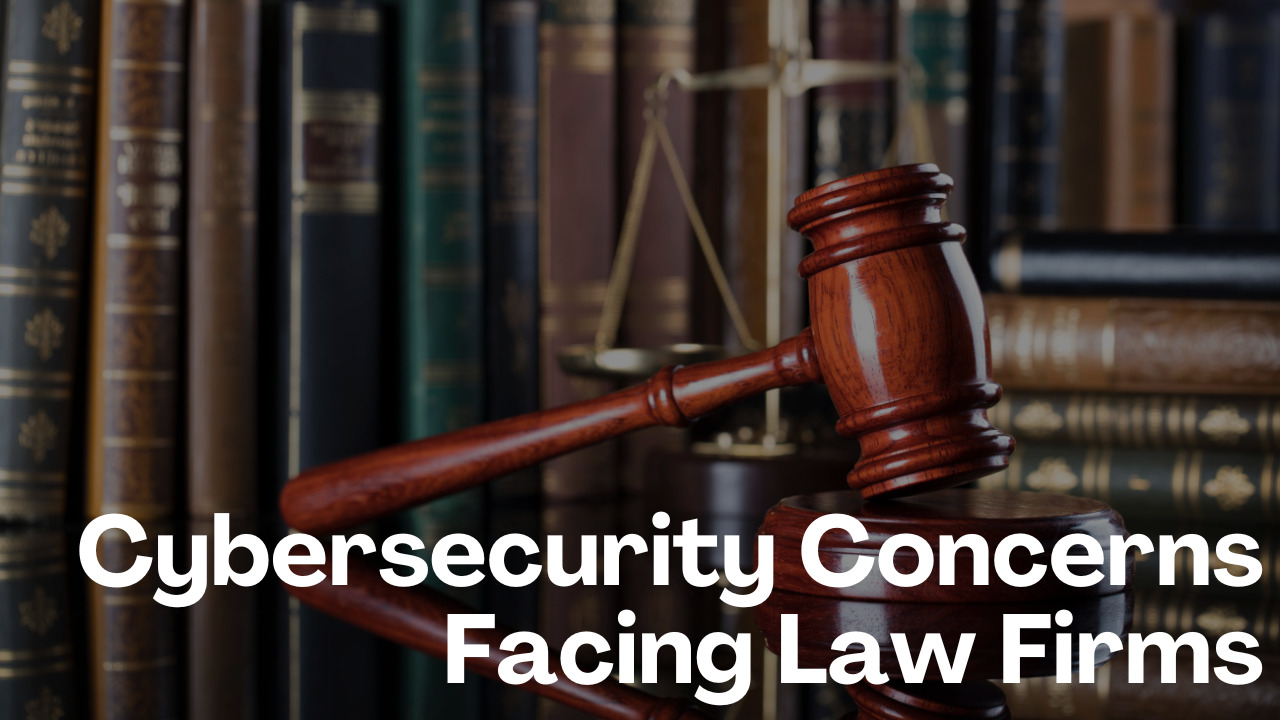The Top 5 Cybersecurity Concerns Facing Law Firms Going Into 2024: Essential Risks Identified
As we approach 2024, law firms increasingly know they are prime cyberattack targets. The sensitive data stored within their systems makes them appealing targets and places them under the microscope of ethical and legal expectations regarding client confidentiality and data security. Navigating the digital landscape, therefore, becomes a critical challenge that requires comprehensive strategies and vigilant cybersecurity measures.
Cybersecurity concerns for law firms are as much about understanding potential threats as they are about implementing preventive measures. In our digital age, the attack surface has expanded dramatically, with threats evolving in complexity and sophistication. Law firms must stay ahead of these developments, ensuring the protection of client information, maintaining the integrity of their operations, and adhering strictly to ever-tightening regulatory requirements.
Key Takeaways
- Law firms must prioritize advanced cybersecurity strategies to protect sensitive data.
- Staying informed about evolving cyber threats is crucial for law firm security.
- Adherence to privacy regulations is mandatory for maintaining trust and legal compliance.
Evolving Malware Threats
As we approach 2024, law firms face increasingly sophisticated malware threats. These evolving challenges necessitate proactive cybersecurity measures.
Ransomware Innovations
Ransomware attacks have become more advanced, with attackers leveraging double extortion tactics. Initially, they encrypt a victim’s files, then threaten to release sensitive data unless a ransom is paid. An emerging concern for us is the trend toward ransomware as a service (RaaS), where malware creators rent out ransomware to other criminals, lowering the entry barrier for attackers.
AI-Enhanced Malware
AI-enhanced malware represents another significant threat. These malware programs can learn and adapt, making them more effective at evading detection and exploiting vulnerabilities. We’re monitoring instances where attackers use AI algorithms to optimize phishing campaigns, making them incredibly personalized and challenging to identify.
State-Sponsored Attacks
State-sponsored cyber threats are a significant risk for law firms, as these entities may engage in sophisticated attacks for strategic gains. Recognition of specific tactics is imperative.
Espionage and Surveillance
We are witnessing an uptick in espionage and surveillance efforts by state actors aiming to obtain sensitive legal information. These adversaries deploy advanced methods, such as:
- Phishing campaigns: Crafted to deceive employees into exposing confidential data.
- Network intrusions: To monitor communications and exfiltrate intellectual property or trade secrets.

Targeted Legal Operations
Law firms are experiencing increasingly targeted disruptions aimed at legal operations. Key attack vectors include:
- Ransomware: Incapacitating critical legal case management software.
- DDoS attacks: Overloading networks and disrupting access to legal resources.
Our proactive stance includes robust countermeasures and employee training to mitigate these risks.
Data Breach and Loss Prevention
In addressing data breaches and loss prevention, we must focus on protecting client information and managing internal risks diligently.
Client Confidentiality Compromises
Our client’s confidential data is a prime target for cybercriminals. It is imperative to employ advanced encryption techniques for data at rest and in transit. We count on strict access controls and continuous monitoring systems to swiftly detect and respond to unauthorized access.
- Encryption: Implement AES 256-bit encryption for sensitive data.
- Access Control: Utilize role-based access controls (RBAC) to limit user access to data.
Insider Threats Management
The handling of insider threats is an intricate aspect of our security posture. We have established comprehensive background checks as a standard procedure for all new hires. Through regular security awareness training, we ensure that our staff understands the gravity of data security. Our strategy includes deploying behavioral analytics to monitor for any suspicious behavior that might indicate malicious intent or accidental mishandling of data.
- Background Checks: Mandatory for all employees and contractors.
- Security Training: Biannual training sessions for all team members.
- Behavioral Analytics: Deployed to flag unusual access patterns and potential insider threats.
Compliance with Privacy Regulations
As we approach 2024, our law firm must adhere to stringent privacy regulations crucial for safeguarding client information and maintaining trust. Specific regulatory challenges include the evolution of GDPR requirements and the assimilation of new data protection laws.
GDPR Adaptations
Since the General Data Protection Regulation (GDPR) took effect, we have diligently updated our privacy policies and data handling procedures to remain compliant. Our adaptations include:
- Documentation: Maintaining records of data processing activities.
- Consent Management: Ensuring explicit consent is obtained before data processing.
- Data Protection Officer (DPO): Appointing a DPO responsible for GDPR compliance.
Emerging Data Protection Laws
We continuously monitor and analyze upcoming legislation to ensure compliance, especially with emerging data protection laws in various jurisdictions. Notable aspects include:
- California Consumer Privacy Act (CCPA): Adapting to CCPA’s consumer rights, similar to GDPR.
- New State & Provincial Laws: Implementing processes for the latest state-level regulations in the U.S and Canada.
- International Standards: Aligning with frameworks such as the APEC Cross Border Privacy Rules.
Emergent Technologies and Adaptation
In addressing cybersecurity for law firms, we must consider how emergent technologies influence our defense strategies. Our adaptation to these advancements shapes our resilience against cyber threats.
Blockchain and Smart Contracting
As law firms begin implementing blockchain technology for enhanced security and transaction efficiency, we observe a shift in the cybersecurity landscape. Blockchain offers a decentralized ledger for smart contracting, providing security benefits, such as transparency and tamper resistance. However, smart contracts are not immune to risks:
- Complexity Risks: The difficulty in understanding smart contract code can introduce vulnerabilities.
- Integration Issues: Interfacing blockchain with traditional systems can create unexpected security gaps.
Cloud Computing Vulnerabilities
Cloud computing presents scalable solutions for law firms, but it also introduces specific vulnerabilities that require diligent management:
- Data Breaches: Sensitive client data in the cloud can be exposed through misconfigurations or inadequate access controls.
- Service Disruptions: Dependency on third-party services increases the impact of Distributed Denial of Service (DDoS) attacks.
Law firms must work closely with cloud service providers to tackle these issues and ensure robust cloud security protocols are in place.








